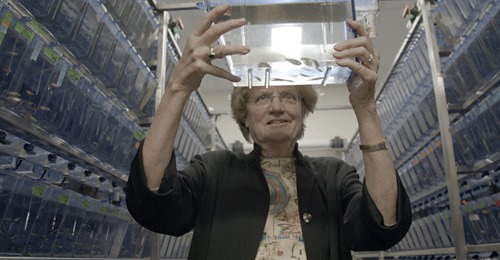The Joseph Moore Museum and Department of Biology at Earlham College is screening the acclaimed documentary Picture A Scientist for 72 hours beginning on Friday, April 30. The documentary portrays discrimination against women in science and highlights three scientists writing a new chapter for women working in the field.
The screening will culminate with a virtual panel and small-group discussions at 7 p.m. Monday, May 3, that feature graduates and faculty from Earlham and Indiana University East. Registration is free and open to the public.
Those interested in watching the documentary outside of the designated time frame can do so for a limited time here.
“We’re taking this as an opportunity to bring people together who are interested in changing the culture of science. We all suffer when STEM research and product design don’t come from diverse teams,” said Heather Lerner, Earlham associate professor of biology and director of the Joseph Moore Museum. “You can’t watch this documentary and just walk away. This film needs to be seen, talked about and acted on.”
Lerner describes the documentary as a reminder of the reasons women are underrepresented in science and STEM fields. A recent “Women in Science” report from the Unesco Institute for Statistics finds that fewer than 30 percent of the world’s researchers are women.
“There is a moment in the documentary where it compares the treatment of women in science to an iceberg,” Lerner said. “The tip of the iceberg is the visible sexual harassment and sexual assault that women are experiencing. Then there’s everything else that you rarely see. That includes all of the subtle slights, the small inconveniences and put downs, missed conversations, missed promotions, lost pay and smaller lab sizes for women.”
Lerner said the 97-minute documentary focuses specifically on women in science, but the local screening and panel discussion will be broader to focus on inequalities across STEM fields.
“These issues affect us all and the barriers will only be removed when we all work together,” Lerner said, noting that in the 20 years since she graduated from high school the world has only experienced a 6 percent gain of women working in STEM fields.
“How is it that all this work we’ve done as a society to be more inclusive has resulted in such a small gain?” she said. “What do we still need to do? I hope this conversation brings our community together to encourage and support future generations of women scientists.”
– Supplied by Earlham College

